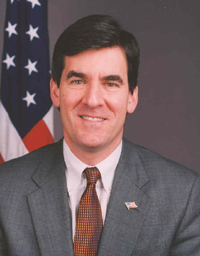A Quote by Yukiya Amano
Seen from the United States or Europe, Irans nuclear program often causes most concern, but from the perspective of countries in the Asia-Pacific region, the North Korean program is equally worrying.
Related Quotes
The vast Pacific Ocean has ample space for China and the United States. We welcome a constructive role by the United States in promoting peace, stability and prosperity in the region. We also hope that the United States will fully respect and accommodate the major interests and legitimate concerns of Asia-Pacific countries.
During the periods when South Korea played a more active role, the inter-Korean relationship was more peaceful, and there was less tension between the United States and North Korea. The last U.S. administration pursued a policy of strategic patience and did not make any effort to improve its relationship with North Korea. Also, the previous Korean government did not make any such efforts. The result is the reality you see today - North Korea continuing to advance its nuclear and missile program.
This is a good deal for the United States, north Korea will freeze and then dismantle its nuclear program. South Korea and our other allies will be better protected. The entire world will be safer as we slow the spread of nuclear weapons. The United States and international inspectors will carefully monitor North Korea to make sure it keeps its commitments. ...Only as it does, so will North Korea fully join the community of nations.
In the spring of 2007, Israeli intelligence brought to Washington proof that the Assad regime in Syria was building a nuclear reactor along the Euphrates - with North Korean help. This reactor was a copy of the Yongbyon reactor the North Koreans had built, and was part of a Syrian nuclear weapons program.
The message that we must send to North Korea is twofold: If the North Korean regime believes that it can defend and protect itself through nuclear and missile programs, that is a misjudgment. But if North Korea gives up its nuclear program, we will help it secure and develop itself. We must consistently send these two messages.
We need an effective American diplomacy that will marshall the resources of nations in the Asian Pacific Rim to put pressure on North Korea, on Kim Jong-un, to abandon his nuclear ambitions. It has to remain the policy of the United States of America, the denuclearization of the Korean peninsula, plain and simple.
The issue has two dimensions. One is the legal dimension and the other one is the issue at the realpolitik. [In the] legal realm, we believe in equal rights for all people in all nations. If Israel, the United States, Russia, Pakistan, other countries, China, have the right to have a nuclear program and nuclear bomb, Iran, too, must have that same right. Now, at the realm of realpolitik, because there is a global consensus against Iran, and because there are all manner of dangers facing Iran, I am opposed to this program.
The North Korean regime remains one of the world's leading proliferator of missile technology, including transfers to Iran and Syria. The transfer of nuclear weapons or material by North Korea to states or non-state entities would be considered a grave threat to the United States, and we would hold North Korea fully accountable of the consequences of such action.
North Korea continues to advance its nuclear technology and will soon reach weaponization. Regarding its intercontinental ballistic missiles, it is continuously making progress. So currently, it is urgent for us to freeze North Korea's program so they will stop additional provocations and stop advancement of its technologies. I believe during my upcoming summit meeting in the U.S. I will be able to discuss a two-phased approach to the North Korean nuclear issue - the first being a freeze and the second being complete dismantlement.
The Europeans are starting to show that they're finally serious about the Iranian nuclear program, and they appear to be willing to use sticks against Iran. So I think it is imperative that the United States sit down with the Europeans and say, "Let's make this very clear to the Iranians. Either they can give up their nuclear program and their support for terrorism, in which case we'll given them all kinds of benefits. Otherwise, we'll join in comprehensive, multilateral sanctions that will cripple their very fragile economy."





































